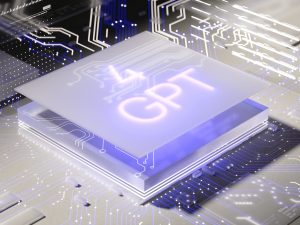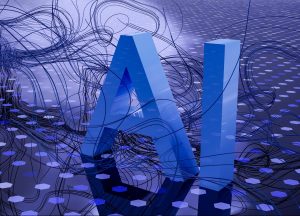ARTIFICIAL INTELLIGENCE (AI) IN THE WORKPLACE
In today’s technological age, the adoption of artificial intelligence (AI) in the workplace has become more of a necessity than a choice, with AI rapidly evolving and integrating into various aspects of our daily lives, including at the workplace.

AI’s integration into the workplace has surged in recent years, revolutionizing industries from healthcare to customer service. Businesses use AI for diverse applications such as data analysis, automation, chatbots and talent acquisition. While AI promises significant benefits and efficiencies in the workplace, it does not come without an increase in legal and ethical considerations surrounding its use. It is therefore becoming essential for organizations to establish AI policies to ensure the accuracy of the information, compliance with legal and regulatory frameworks such as data protection regulations and copyright infringement laws as well as ensuring ethical and high-quality performance from staff.
As a law firm we understand the intricate challenges that AI integration poses in the modern workplace and therefore below please find a general workplace AI policy for you to consider using. An AI policy is a proactive step that not only mitigates risks but also positions your organization as a responsible and ethical leader in the age of AI.
WORKPLACE ARTIFICIAL INTELLIGENCE (AI) POLICY

Purpose and Scope
- This policy provides guidelines for the development, implementation, use, and monitoring of AI in the workplace.
- This policy covers the use of any third-party or publicly available AI tool, such as ChatGPT, Bard, Bing, DALL-E, Midjourney and other similar applications that mimic human intelligence to generate answers, work product, or perform certain tasks.
Use of AI in the workplace
- Employees are strictly prohibited from feeding/providing any company-sensitive, proprietary information, trade secrets, private information, employee personal information, or any confidential information into AI programs, and failure to comply herewith may result in disciplinary action.
- It is prohibited to utilise AI tools to make or help make employment decisions about applicants or employees, including but not limited to recruitment, hiring, retention, promotions, transfers, performance monitoring, discipline or terminations.
- AI tools should only be used for authorized work-related tasks. Any use of AI tools for personal purposes or activities unrelated to work is strictly prohibited on any company issued equipment or on the company internet / network.
- When utilizing AI tools, employees should avoid spreading biases, discrimination, or any form of harm. Inputs and instructions given to AI should align with the Company’s values and ethical standards.
Quality
- Information received from any AI platform must to be verified using reasoned human judgment and appropriate research techniques. Employees are required to verify the accuracy and relevance of AI-generated outputs.
Disclosure
- Employees are obliged to disclose the use of AI tools as well as the extent it aided in the creation of any content developed by an employee.
Non-Compliance
- Failure to comply with this policy, including misuse of AI tools, violation of data privacy and security protocols, or failure to disclose AI usage can result in disciplinary action being instituted against an employee.
- Employees who have concerns about the usage of AI tools, ethical considerations, or potential biases should report their concerns to their immediate superior or the designated contact person for AI-related matters.
